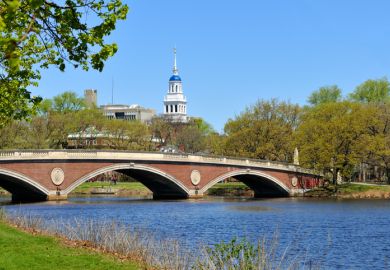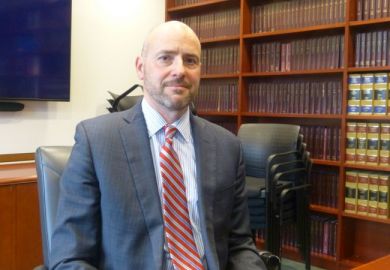The Trump administration, in its ongoing crackdown on Chinese academics, reportedly plans to expel as many as 3,000 Chinese graduate students and researchers it deems to have academic links to their military.
Donald Trump and Mike Pompeo, the US secretary of state, have been working on the plan, which would cancel the visas of Chinese nationals with any ties to military-affiliated universities, The New York Times reported.
US university leaders said they have been bracing for further visa restrictions against Chinese students but have not yet seen details.
The initiative marks another escalation in the Trump administration’s antipathy towards China generally, and with specific wariness of its intent with regard to scientific expertise.
The administration’s actions include a series of demands on US universities to produce records of their financial ties to China and other foreign governments, and the firings or arrests of researchers accused of failing to fully disclose those connections.
US universities have long acknowledged the threat of espionage. But they have also noted that academic research is generally meant to be shared − and have warned that the 360,000 Chinese students in the US are critically important, both for their tuition dollars and for their vital contributions to US research capacity.
The reported proposal to cancel visas for Chinese graduate students with any suspected military links heightens that concern, said Sarah Spreitzer, director of government and public affairs at the American Council on Education, the leading US higher education lobby group.
“If it’s being done for national security reasons, that’s not something that we want to stand in the way of,” Ms Spreitzer said. “But if it’s very broad, and it’s going to capture people who are not a national security concern, then it’s going to be problematic.”
That anxiety is compounded, she said, by signs that the Trump administration may be basing its definition of Chinese academics with military ties on assessments by the Australian Strategic Policy Institute, a government-funded thinktank in Canberra. The Australian group, she said, takes "a very broad definition of ties with the military" in China.
But one hopeful sign for US universities is the emerging policy’s apparent exclusion of undergraduates from the visa-cancellation plan. US universities have tried to emphasise to the Trump administration the low likelihood of Chinese undergraduates being involved in sensitive research, Ms Spreitzer said.
Overall, however, the reported development is alarming US universities, Ms Spreitzer said: “I’ve already heard from institutions that are very concerned with, ‘What does this mean?’”
The American Council on Education has led other US higher education groups in recent weeks in writing letters to Trump administration officials explaining that, overall, admitting Chinese students into the country, and letting them remain after their studies to work in private industry, represent a net economic gain for the US.
By contrast, the administration has in the aftermath of the coronavirus outbreak suggested that historically high levels of US unemployment justify suspending immigration to reduce labour-market competition.
The reality, the university groups have argued, is that talented international students improve the US economy by helping US companies to stay in business.
“In critical emerging industries like artificial intelligence,” the groups wrote to Mr Pompeo and other top administration officials, “the US maintains a decisive edge over China and other countries because of our higher education system.”
Register to continue
Why register?
- Registration is free and only takes a moment
- Once registered, you can read 3 articles a month
- Sign up for our newsletter
Subscribe
Or subscribe for unlimited access to:
- Unlimited access to news, views, insights & reviews
- Digital editions
- Digital access to THE’s university and college rankings analysis
Already registered or a current subscriber?







